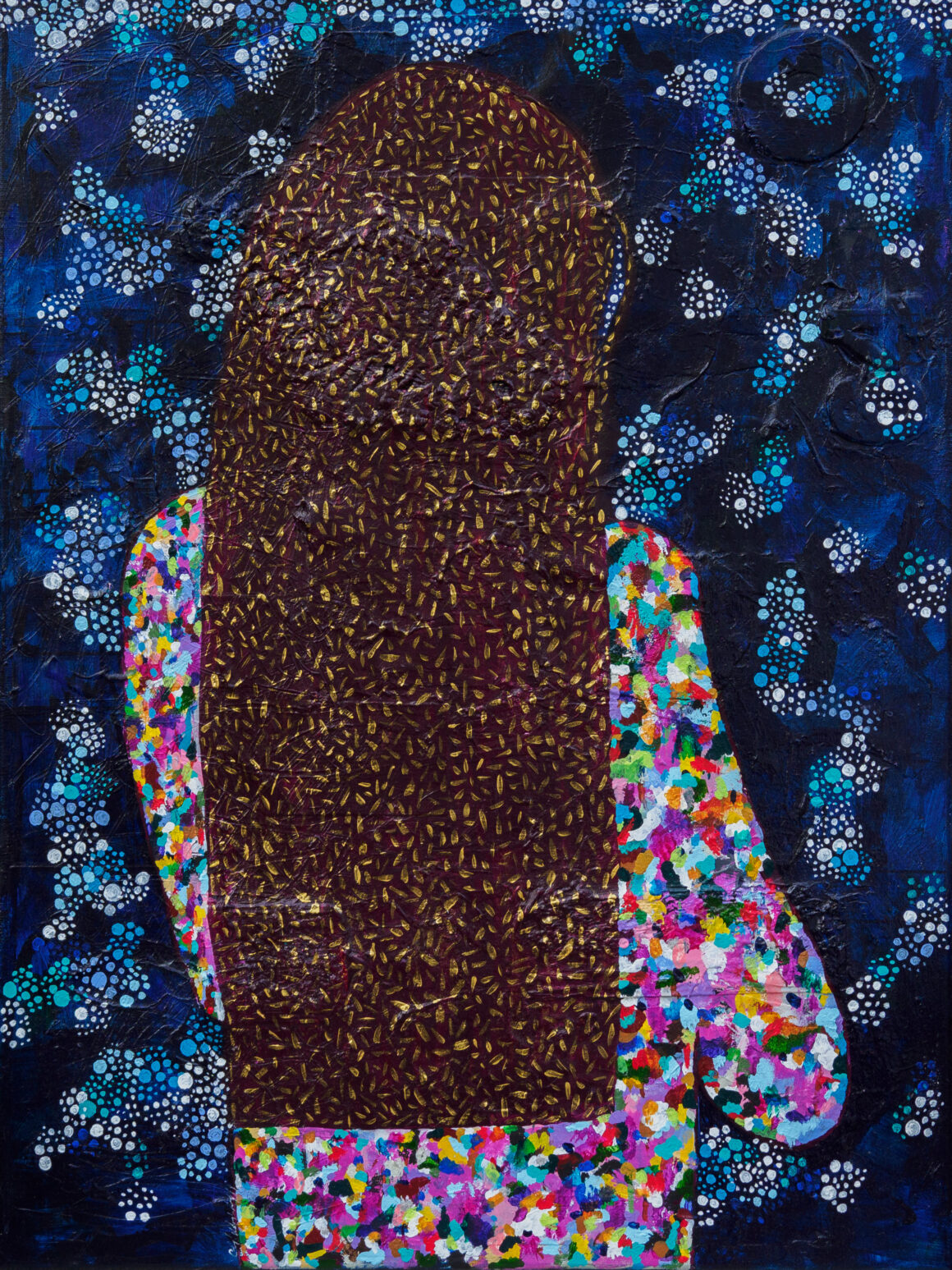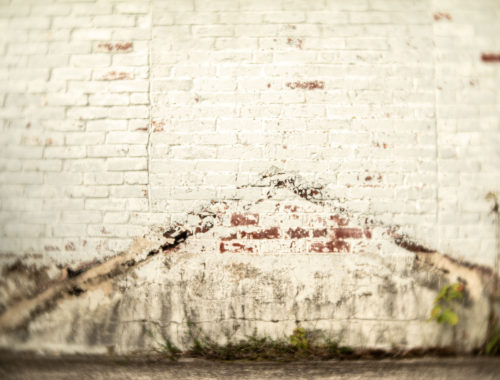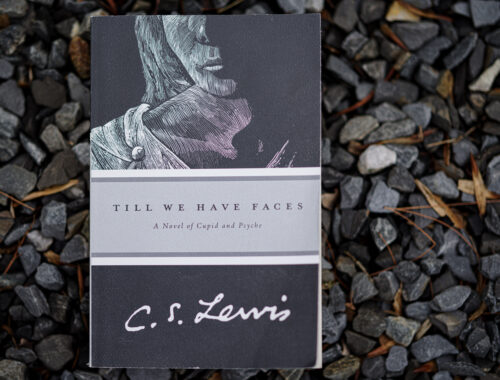
Unacknowledged Does Not Equal Nonexistent
Our past is strewn with clues: some are as subtle as a phrase, habitually repeated without thought, while others are as obvious as a dead body. Which symbols, which images do we use over and over, perhaps without understanding why?
More than a decade ago, I started art journaling, sold on the idea that expressing emotions with paint and paper can be therapeutic, and it did help, but not in ways I was aware of. I’ve never given up the practice, and I’ve completed any number of paintings, taking an online class here and there, but mostly just soaking up as much visual imagery and art history as possible.
Art helps people heal because it comes from the subconscious. Even with a carefully planned composition based on a model, a still life, or a landscape, the artist makes choices, often unaware of why she has picked a certain color or a certain perspective, or even the subject to begin with.
One of my own favorite pieces hangs on the living room wall. It is a mixed media painting that began with a heavily collaged canvas and a multiple exposure photograph of my youngest child washing her hands at the sink in my studio. Start to finish, from the moment I first applied something to the canvas to the one in which I signed my name, the piece probably took eight years and all of my life until then to complete. I don’t know if anyone else finds much meaning in it, but to me, it’s powerfully important, slowly revealing secrets I had no idea I was hiding in it.
Art is a gate to another world, a world that some part of you remembers and either wants to get back to or flee from. I wonder, now, if a good metric for healing is how such an old, hidden world makes you feel: do you want to barrel on into it, bursting through the jungle of trees and leaves not meant, specifically, to keep you out, but enough of a screen to keep you from finding the world too easily? Or does it cause you to hang back, telling yourself that all that vegetation is too thick and likely alive with snakes, spiders, and insects that can kill?
My older daughter tells me that her dreams are different now. In her sleep, she finds herself in her own apartment, late at night, but the front door is thrown wide, and as she catches her breath and starts prowling around her home, trying to ascertain if she’s still alone, she tells herself to not get too worked up, as it’s only a dream. “In the dream, I’m aware that I’m dreaming,” she says. “Do you think this means that I’m avoiding things I should be dealing with?”
“No,” I reply (and later learn that my husband has the same thought when he hears the story). “I think it means that you’re healing, that these unconscious memories are coming to the surface, thereby becoming safe. They have power over you when they remain hidden. So, now that you can see so many of them, because you’ve been working to uncover your past, your dreaming mind doesn’t need to keep you in the dark, doesn’t need to show you things you’d be unable to deal with when awake.”
This is pure speculation on my part, and on Dennis’s, but it seems that everywhere I turn now, I’m confronted with information about dreams, REM sleep, and how very much power one’s unconscious mind wields when it’s left to its own devices. Dennis has read some of what I have, and we often share our thoughts on what we are each learning. And just so you know, I am incredibly thankful for this. Fellow travelers are very hard to find when you’re headed into realms everyone wants to pretend don’t exist.
Stephanie Foo has gone there. On pages 190–191 of What My Bones Know, she writes about what she and her father argued about in an airport when she was 27. First, a little background: Stephanie and her parents are Malaysian immigrants, having come to the United States in 1989, when Stephanie was two years old. Her father, who had previously been here getting a degree from Stanford, secured a lucrative job in Silicon Valley and moved his family to San José when persecution of the Chinese in Malaysia was ramping up. Eventually, Stephanie’s physically abusive mother (a fan of beatings that lasted for hours) left her husband and 12-year-old child and effectively disappeared from their lives. Stephanie’s father stayed with her for another three years, then simply moved out, leaving his daughter the house and a car. He hadn’t resorted to physical abuse often, being more partial to the psychological terror of trying to kill himself and his daughter by driving into oncoming traffic, and after he left, the two of them stayed in touch to a certain extent. Stephanie mostly survived until high school graduation by stealing food and using the income from her afterschool job to put gas in the car.
Now we’re ready for the airport argument when Stephanie is 27: she and her father are flying to Malaysia for a family wedding, and they had already spent a few days in Singapore with an aunt. She’s the one who casually mentioned her brother’s wife, and that’s how Stephanie learned that, eight years previously, her father had gotten remarried.
“Why did you lie to me for ten years? Saying that you had a girlfriend when all this time you were married?”
“What? I never lied to you.”
“This entire time you talked about your friend. And she’s actually your wife? . . .”
He flies into defensive mode. “It was just a small thing! What else would you expect me to do? You never liked her. You never even met her. . . . You would have gotten angry and pissed and freaked out if I told you. You’re always like that. So what was I supposed to do?”
“You don’t know how I would have acted. And that isn’t an excuse.” My voice rises a few decibels. “And —oh my God, dude, go to therapy, this is so fucking transparent—you are obviously attacking me to conceal your own shame. With you, there’s never any fucking accountability!”
Without looking up, the man in the suit [across from us] quietly packs up his laptop and moves to the far end of the gate to extricate himself from this situation. I don’t care. Let the world see. Let the world hear. Say it. Say it out-fucking-loud. Say the truth, however hurtful it may be.
But my father just gives me the same rant he always does. “You always look into the past. And what’s the point? I can’t go back in time just to make you happy and make your life perfect. And you can never see the future because your head is stuck on backward. The past. Is. The. Past!”
Except it isn’t, of course. The past is always here, haunting our homes, standing over us at night. They say you don’t get rid of a ghost by pretending it isn’t there. The legends tell us to address the ghost directly. Declare that this is our home and it isn’t welcome here anymore. But I’m the only one yelling, screaming at spirits in the living room while everyone else averts their eyes, pretending there’s nothing wrong.
Thank God for kindred spirits like Stephanie, even when they’re found only in the pages of a book.




